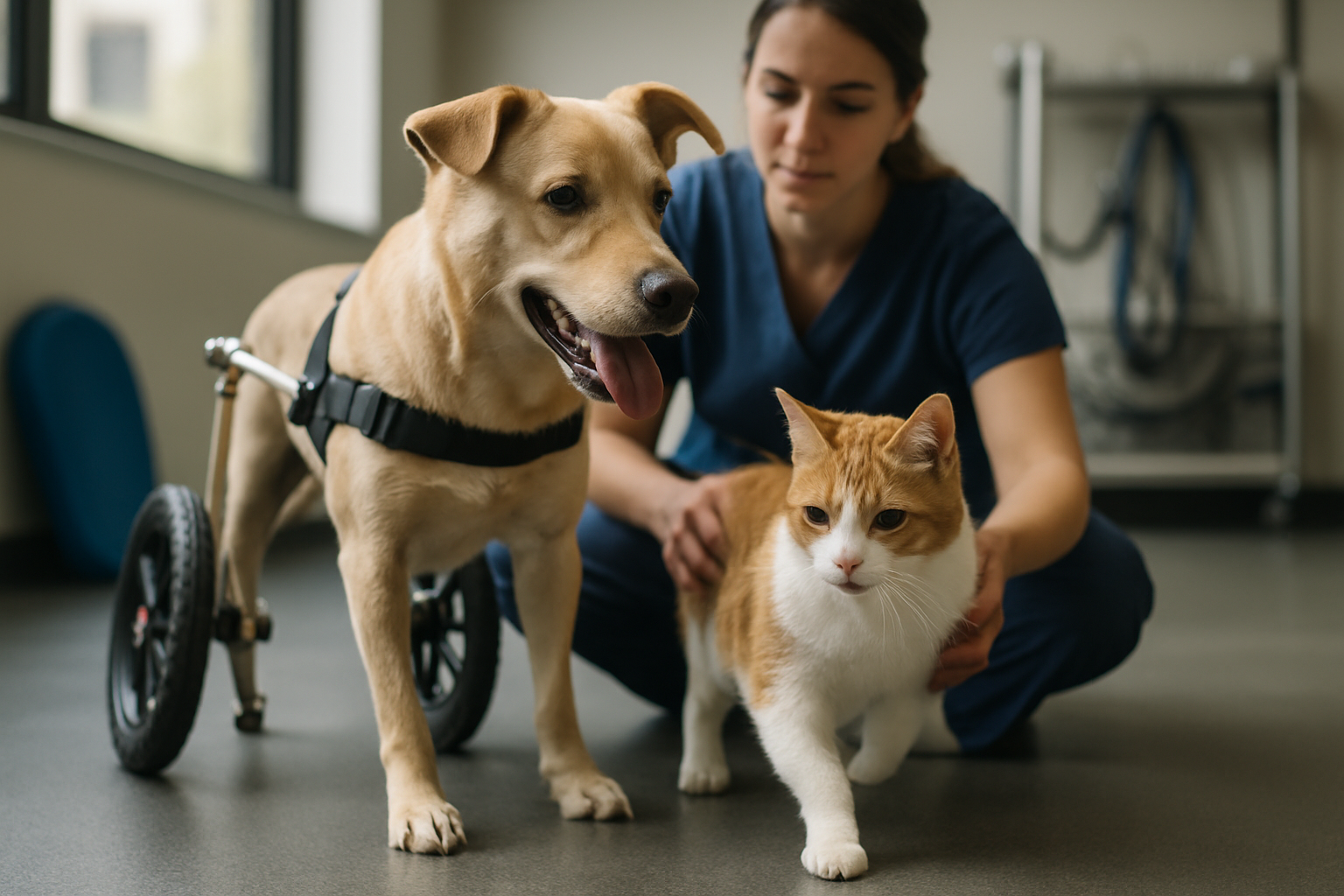Building Strong Foundations for Lifelong Animal Health
Establishing proper care routines from the beginning creates the foundation for your pet's long-term health and happiness. Whether you're welcoming a new companion or improving existing care practices, understanding the essential elements of pet wellness helps ensure your animal friend thrives throughout their life. From nutrition and exercise to preventive healthcare and mental stimulation, comprehensive pet care involves multiple interconnected aspects that work together to support optimal health outcomes.

Pet ownership brings immense joy and companionship, but it also carries the responsibility of ensuring your animal’s health and wellbeing throughout their lifetime. Creating strong foundations for pet health requires understanding their basic needs, establishing consistent routines, and maintaining proactive healthcare approaches that prevent problems before they develop.
Tips for Healthy Pets
Maintaining pet health starts with fundamental care practices that address their physical, mental, and emotional needs. Regular veterinary checkups form the cornerstone of preventive healthcare, allowing early detection of potential issues and ensuring vaccinations remain current. Proper nutrition tailored to your pet’s species, age, and activity level provides essential nutrients for growth, energy, and disease resistance.
Dental care often gets overlooked but plays a crucial role in overall health. Regular teeth cleaning, appropriate chew toys, and dental treats help prevent periodontal disease that can affect other organ systems. Parasite prevention through regular treatments protects against fleas, ticks, worms, and other harmful organisms that can cause serious health complications.
How to Care for Pets
Effective pet care encompasses both daily maintenance and long-term health strategies. Grooming requirements vary by species and breed, but regular brushing, nail trimming, and bathing when necessary help maintain skin and coat health while providing opportunities to check for unusual lumps, cuts, or irritations.
Environmental enrichment keeps pets mentally stimulated and emotionally balanced. This includes providing appropriate toys, social interaction, and environmental variety that matches their natural behaviors. Safe spaces where pets can retreat when stressed contribute to their psychological wellbeing and reduce anxiety-related health issues.
Proper identification through microchipping and updated ID tags ensures lost pets can be quickly reunited with their families. Emergency preparedness, including first aid knowledge and emergency veterinary contacts, helps pet owners respond effectively to unexpected health crises.
Understanding Pet Health Needs
Different life stages require adjusted care approaches to address changing health needs. Puppies and kittens need frequent feeding, socialization, and initial vaccination series, while senior pets may require modified diets, joint support, and more frequent health monitoring. Understanding these transitions helps owners adapt their care strategies appropriately.
Species-specific needs also influence health requirements. Dogs need regular exercise and social interaction, while cats require mental stimulation through hunting-like play and vertical spaces for climbing. Small mammals, birds, and reptiles each have unique environmental, dietary, and healthcare needs that must be thoroughly researched and properly implemented.
Recognizing early warning signs of illness enables prompt treatment that often improves outcomes significantly. Changes in appetite, behavior, bathroom habits, or energy levels can indicate developing health problems that require veterinary attention.
Daily Routines for Pet Wellness
Consistent daily routines provide structure that reduces stress while ensuring essential care tasks are completed regularly. Feeding schedules help maintain digestive health and prevent obesity, while regular exercise promotes cardiovascular fitness, muscle tone, and mental stimulation appropriate to each pet’s abilities.
Daily observation allows owners to notice subtle changes in their pet’s condition or behavior that might indicate health concerns. Simple checks during grooming or play sessions can reveal skin problems, lumps, or discomfort that warrant professional evaluation.
Establishing bedtime routines helps pets feel secure and promotes quality sleep essential for physical recovery and mental health. Consistent sleep schedules also make it easier to notice when pets are experiencing discomfort or illness that affects their rest patterns.
| Service Type | Provider | Cost Estimation |
|---|---|---|
| Annual Veterinary Checkup | Local Veterinary Clinics | ₹2,000 - ₹5,000 |
| Vaccination Package | Animal Hospitals | ₹1,500 - ₹3,500 |
| Professional Grooming | Pet Grooming Services | ₹800 - ₹2,500 |
| Pet Insurance | Various Insurance Companies | ₹500 - ₹2,000/month |
| Emergency Veterinary Care | 24-hour Animal Hospitals | ₹3,000 - ₹15,000+ |
Prices, rates, or cost estimates mentioned in this article are based on the latest available information but may change over time. Independent research is advised before making financial decisions.
Building strong foundations for lifelong animal health requires commitment, knowledge, and consistent application of proper care principles. By understanding your pet’s specific needs, establishing appropriate routines, and maintaining proactive healthcare approaches, you create the best possible conditions for your companion to live a long, healthy, and happy life. Regular veterinary partnerships, combined with attentive daily care, provide the comprehensive support system that helps pets thrive throughout all life stages.




